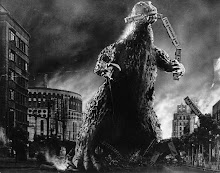
Talk to Her (2002)
[www.imdb.com/title/tt0287467]
The Gist:
After watching All About My Mother I immediately picked up another well noted film by the director, and about halfway through the film I was pretty sure I didn't like it. First of all, unlike All About My Mother (where depressing things happen, but the audience is carried through it by the Mother's resilience...and here I said I wouldn't say anything about the film's plot) this film wades through its depression, allows itself to sink into the ground, drenches the film with meloncholic melodies, and so on. Then you have one of the main characters turning out to be a sort of stalker who is now the nurse of the comatose woman who he was basically stalking and...it was creepy, it wigged me out. However, once the film stopped fliriting the line with his character and delved into full on delusion, the film saved itself a bit in my eyes. I feel like what I'm left with is a film filled with fascinating moments, overall very powerful, but too odd to connect to. If the film was just about Marco, I think I would have liked it a great deal. But trying to reconcile my feelings with Benigno ended up having too great an impact.
On Another Note:
In retrospect, that silent film in the middle and the ending with the floodlights on Alicia are both completely brilliant.














